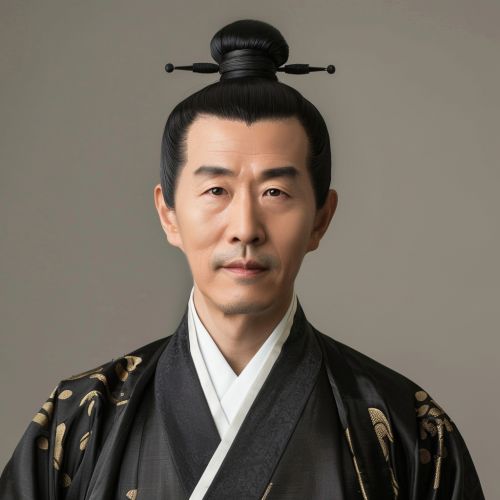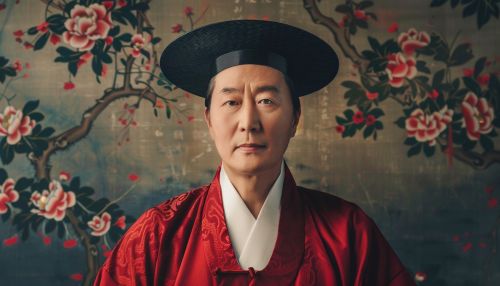Yan Fu
Early Life and Education
Yan Fu (1854-1921) was a prominent Chinese scholar and translator during the late Qing Dynasty. Born in Fuzhou, Fujian Province, Yan Fu's early life was marked by rigorous education in the Confucian classics. His father, Yan Zhen, was a scholar who instilled in him a deep appreciation for traditional Chinese learning. At the age of 14, Yan Fu entered the Fuzhou Naval Academy, where he was exposed to Western science and technology, an experience that would profoundly shape his intellectual trajectory.
Career and Contributions
Upon graduating from the Fuzhou Naval Academy, Yan Fu was sent to England in 1877 to study at the Royal Naval College in Greenwich. This period of overseas study exposed him to Western philosophy, science, and political thought. Yan Fu's naval career, however, was cut short due to health issues, prompting his return to China in 1879.
Translation Work
Yan Fu is best known for his translations of seminal Western works into Chinese. His translation of Thomas Huxley's "Evolution and Ethics" introduced the Chinese intellectual community to Darwinian thought. Yan Fu's translations were not mere linguistic conversions; he adapted the texts to resonate with Chinese cultural and intellectual traditions. His translation methodology was encapsulated in his famous dictum: "faithfulness, expressiveness, and elegance" (信、达、雅).


Philosophical and Political Thought
Yan Fu's engagement with Western thought extended beyond translation. He was deeply influenced by the works of John Stuart Mill, Herbert Spencer, and Adam Smith. Yan Fu's writings on social Darwinism and liberalism were instrumental in shaping the intellectual landscape of late Qing China. He argued for the necessity of reform and modernization, advocating for a constitutional monarchy and the adoption of Western scientific and educational methods.
Major Works
"Tianyanlun" (天演论)
"Tianyanlun," Yan Fu's translation of Huxley's "Evolution and Ethics," is perhaps his most influential work. Published in 1898, it played a crucial role in introducing evolutionary theory to China. Yan Fu's preface to the translation emphasized the importance of understanding natural selection and survival of the fittest as principles applicable not only to biology but also to social and political life.
"Yuanfu" (原富)
"Yuanfu," Yan Fu's translation of Adam Smith's "The Wealth of Nations," was another landmark contribution. Published in 1901, it introduced Chinese readers to the principles of capitalist economics and free-market theory. Yan Fu's interpretation of Smith's work underscored the importance of economic liberalism for national strength and prosperity.
"Qunxue Yiyan" (群学肄言)
In "Qunxue Yiyan," Yan Fu translated and commented on Herbert Spencer's "Study of Sociology." This work further elaborated on social Darwinism, arguing that societies, like species, must adapt to survive. Yan Fu used Spencer's ideas to critique the stagnation of Chinese society and to advocate for comprehensive social reform.
Influence and Legacy
Yan Fu's impact on Chinese intellectual history cannot be overstated. His translations and writings provided the Chinese intelligentsia with a framework for understanding and engaging with Western thought. Yan Fu's advocacy for reform and modernization influenced key figures in the Xinhai Revolution and the subsequent establishment of the Republic of China.
Yan Fu's legacy extends beyond his lifetime. His works continue to be studied and debated by scholars of Chinese intellectual history. The principles he introduced remain relevant in discussions of China's modernization and its engagement with global ideas.
